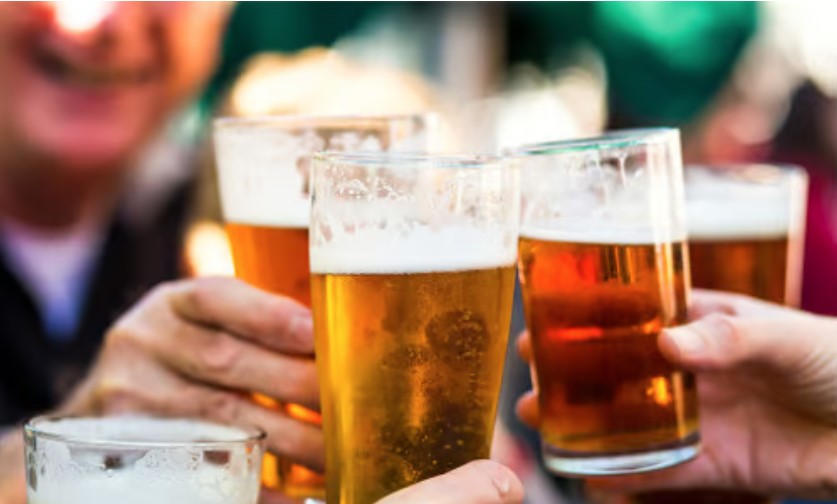Understanding Liquor Liability Insurance
Liquor Liability Insurance plays a crucial role in safeguarding hospitality businesses from potential risks and liabilities associated with alcohol service. This section will delve into the significance of understanding what this insurance entails and its vital importance in the hospitality industry.
What is Liquor Liability Insurance?
Liquor Liability Insurance is a specialized coverage designed to protect businesses that serve or sell alcoholic beverages. Understanding its definition and purpose is essential for comprehending its role in mitigating risks.
Definition and Purpose: Liquor Liability Insurance provides coverage for claims related to alcohol-induced incidents, such as injuries, property damage, or accidents caused by customers who were served alcohol at the insured establishment.
Coverage Details and Limitations: It’s imperative to grasp the specific inclusions and limitations of this insurance, which can vary based on the policy and provider. Understanding the extent of coverage is essential for making informed decisions regarding risk management.
Importance for Hospitality Businesses
The hospitality industry, encompassing bars, restaurants, and other establishments serving alcohol, faces unique challenges and liabilities associated with alcohol consumption.
The Impact of Alcohol-Related Incidents: Alcohol-related incidents, including intoxicated patrons causing disturbances or accidents, can result in substantial financial and legal ramifications for businesses. Liquor Liability Insurance acts as a critical financial shield in such situations.
Legal Requirements and Regulations: Many jurisdictions impose legal requirements for businesses serving alcohol to carry Liquor Liability Insurance. Understanding the specific regulations in your area is crucial for compliance and mitigating potential legal liabilities.
Coverage Options for Liquor Liability Insurance
Liquor Liability Insurance offers a range of coverage options tailored to address the specific risks faced by businesses serving alcohol. In this section, we will explore the diverse coverage options provided by Liquor Liability Insurance, elucidating the general coverage as well as specialized policies designed to mitigate potential liabilities in the hospitality industry.
General Liquor Liability Coverage
Injury or Damage Caused by Intoxicated Individuals: This facet of the coverage pertains to claims arising from injuries or property damage caused by individuals who were served alcohol at the insured establishment. Understanding the extent of coverage for such incidents is vital for businesses to assess their risk exposure.
Defense Costs for Lawsuits: Liquor Liability Insurance often encompasses coverage for legal defense costs in the event of lawsuits related to alcohol-induced incidents. This includes legal representation and associated expenses, safeguarding businesses from the financial burden of legal proceedings.
Assault and Battery Coverage
Protection from Physical Altercations: Businesses in the hospitality industry, particularly establishments serving alcohol, face the risk of altercations or fights breaking out on their premises. Assault and Battery Coverage provides protection in such scenarios, covering claims related to physical altercations that may occur on the insured property.
Specifics of Coverage: Understanding the specific inclusions and exclusions within the Assault and Battery Coverage is crucial for businesses to ascertain the extent of protection provided in the context of physical altercations.
III. Comparing Liquor Liability Insurance Policies
Now we will explore the intricacies of comparing and evaluating various Liquor Liability Insurance policies, encompassing aspects such as premium costs, deductibles, coverage limits, and crucial exclusions to be cognizant of. An informed comparison of policies is essential for businesses to make sound decisions regarding their insurance coverage.
III. Comparing Liquor Liability Insurance Policies
In the realm of Liquor Liability Insurance, a critical aspect for businesses is the comparison of different policies to make informed decisions about the most suitable coverage. This section will delve into the intricacies of comparing and evaluating various Liquor Liability Insurance policies, encompassing premium costs, deductibles, coverage limits, and crucial exclusions to consider when selecting an insurance policy.
A. Premium Costs and Deductibles
Understanding the financial aspects of Liquor Liability Insurance is paramount for businesses. Factors influencing premium rates should be carefully assessed to align with budgetary considerations and risk management.
Factors Influencing Premium Rates: Various factors, such as the location of the establishment, past claims history, and the type of alcohol served, can impact the premium costs. Businesses need to comprehend these influences to anticipate and manage insurance expenses effectively.
Understanding Deductible Options: Examining the deductible options offered by insurance policies is essential, as it directly affects the out-of-pocket expenses in the event of a claim. Understanding the trade-offs between premium costs and deductible amounts is integral to selecting an optimal policy.
B. Coverage Limits and Exclusions
In navigating Liquor Liability Insurance policies, understanding the coverage limits and exclusions is pivotal in evaluating the extent of protection provided and the potential gaps in coverage to address.
Limits on Liability Coverage: Policies impose specific limits on the amount of coverage provided. Understanding these limits is crucial for businesses to assess whether the coverage aligns with their potential liabilities and risk exposure.
Common Exclusions to Be Aware of: Insurance policies often delineate exclusions, outlining scenarios or incidents for which coverage is not provided. Being cognizant of these exclusions helps businesses identify areas where additional risk mitigation strategies may be necessary.
IV. Tips for Choosing the Right Policy
In the following section, we will delve into essential tips for businesses to assess their risk exposure, collaborate with experienced insurance agents, and seek tailored coverage to address their unique liabilities effectively. This information will empower businesses to make informed decisions when selecting a Liquor Liability Insurance policy that suits their specific requirements.
IV. Tips for Choosing the Right Policy
Selecting an appropriate Liquor Liability Insurance policy entails a thorough assessment of business risks, collaboration with experienced insurance agents, and seeking tailored coverage to address specific liabilities effectively. In this section, we will delve into essential tips for businesses to navigate the process of choosing the right policy that aligns with their unique requirements and risk profile.
A. Assessing Business Risk
Effectively assessing potential liabilities and risks specific to the nature of the business and the dynamics of alcohol service practices is fundamental in determining the appropriate coverage needed.
Identifying Potential Liabilities: Businesses should conduct an in-depth evaluation of the potential liabilities associated with alcohol service, which may include risks related to over-serving patrons, incidents of intoxication, or other alcohol-related accidents.
Evaluating Alcohol Service Practices: Understanding and assessing the alcohol service practices within the establishment is crucial to pinpoint areas where potential liabilities and risks may emerge, allowing businesses to prioritize coverage options accordingly.
B. Working with an Experienced Agent
Collaborating with an experienced insurance agent who specializes in Liquor Liability Insurance can provide invaluable guidance throughout the process of selecting an appropriate policy.
Guidance for Navigating Policy Options: A knowledgeable agent can provide comprehensive insights into the various policy options available, aiding businesses in making informed decisions that align with their risk management strategies and financial considerations.
Seeking Tailored Coverage for Specific Risks: An experienced agent can assist businesses in identifying and securing tailored coverage that addresses their specific risks and liabilities, ensuring a comprehensive and customized insurance solution.
By following these tips, businesses can make informed decisions when selecting a Liquor Liability Insurance policy that effectively safeguards them against potential liabilities and risks. The subsequent section will delve into the importance of staying informed and updated about regulatory changes and the necessity of periodically reviewing and adjusting insurance coverage.
V. Staying Informed and Updated
Staying abreast of regulatory changes and proactively reviewing and adjusting Liquor Liability Insurance coverage are pivotal practices for businesses in the hospitality industry. In this section, we will delve into the critical importance of monitoring regulatory changes, understanding compliance updates, and the necessity of periodic policy evaluation to adapt to business growth or changes effectively.
A. Monitoring Regulatory Changes
Standards and Compliance Updates: Businesses must diligently monitor and stay informed about any changes or updates in the legal standards and compliance requirements related to alcohol service and liability insurance. This includes being attentive to changes in local, state, and federal regulations that may impact insurance obligations.
Impacts on Insurance Requirements: Understanding how regulatory changes influence insurance requirements is essential for businesses to ensure that their coverage aligns with the evolving legal landscape, thereby avoiding potential compliance issues and gaps in protection.
B. Reviewing and Adjusting Coverage
Periodic Policy Evaluation: Regular assessment of Liquor Liability Insurance policies allows businesses to gauge the adequacy of their coverage and make necessary adjustments. This involves reviewing the terms, limits, and exclusions of the policy to ensure it aligns with the current operational and risk landscape.
Adapting to Business Growth or Changes: As businesses evolve and grow, their risk profiles and insurance needs may undergo significant changes. It is crucial to periodically evaluate and adapt insurance coverage to effectively mitigate new or amplified risks.
Conclusion
In conclusion, Liquor Liability Insurance is a critical aspect of risk management for businesses in the hospitality industry. Understanding the various coverage options, comparing policies, and selecting the right coverage tailored to specific business risks are integral for comprehensive protection. Moreover, staying informed about regulatory changes, periodically reviewing and adjusting coverage, are indispensable practices to ensure that businesses are effectively shielded from potential liabilities arising from alcohol-related incidents. By implementing these strategies, businesses can align their insurance coverage with their evolving needs and regulatory requirements, ultimately fostering a more secure and resilient operational environment.







